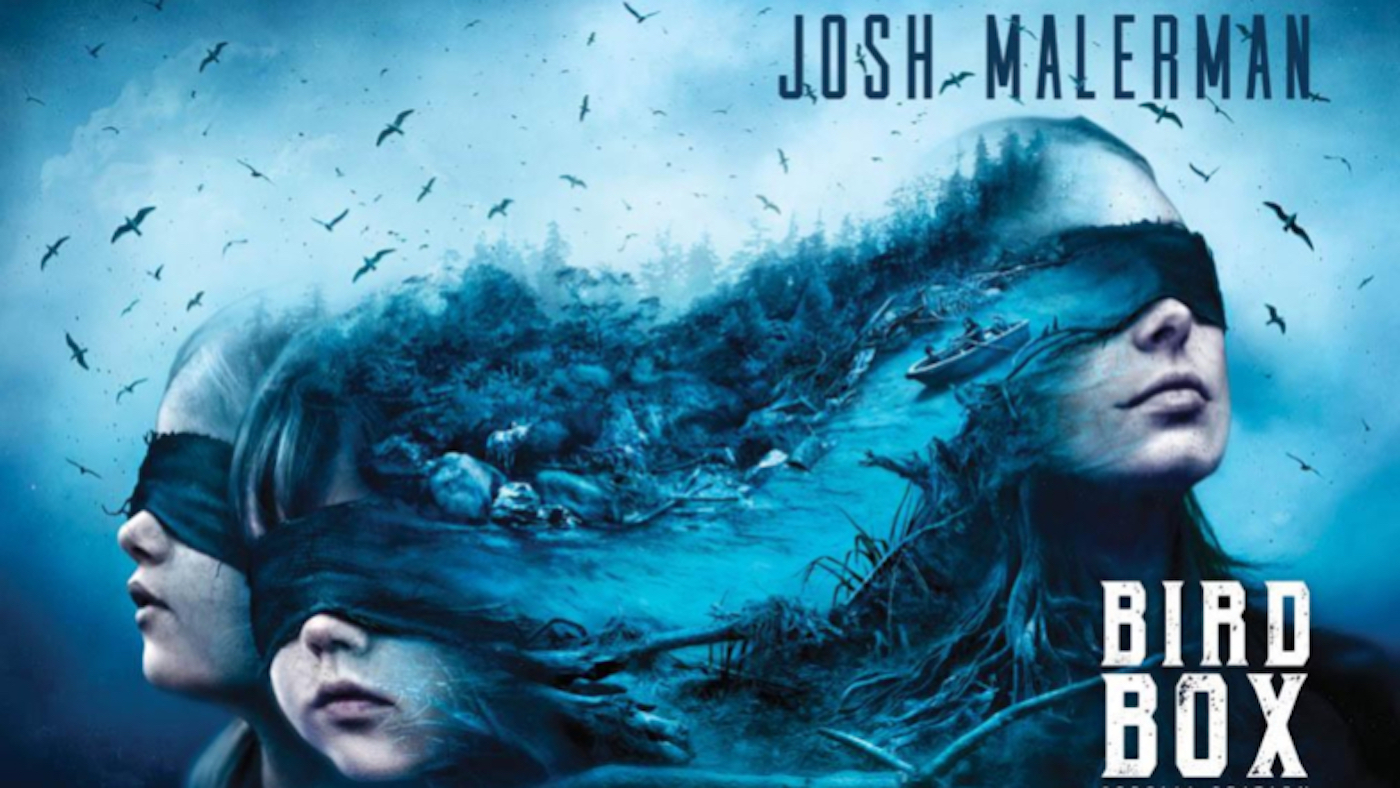By now you’ve heard of Bird Box. Even if you haven’t seen it, you’ve most likely come across memes of Sandra Bullock blindfolded or videos of people trying to make their way through a forest, similarly blindfolded.
Bird Box, based on the novel by Josh Malerman, is an okay movie. A pandemic of suicides strikes the globe, spread not by bacteria, but by… sight? Were you to have the poor luck of seeing an afflicted person take their own life (usually dramatically, and with a flair for the creative), your pupils would go all blurry, and you’d immediately be compelled to take your own life. Unless, of course, you’re “crazy,” in which case all you get is blurry-eye syndrome and are allowed by whatever nefarious force is pulling the strings to run amok, killing and hollering and doing “crazy person” stuff. (Note: mental illness affects one in every five Canadians and manifests itself in symptoms too numerous to list here, not all of which include delusions, and even less of which come hand-in-hand with the kind compulsive violence seen in the film. You’re reaching for some real low-hanging fruit here, Malerman. Most would call that lazy writing.)
Okay, now on to Netflix and their business model, because my argument here is less about Bird Box the movie, and more about the weeks-long marketing push carried out by Netflix to ensure that you watch Bird Box the movie.
At the end of the day, whether or not Bird Box was a “good” movie is irrelevant. (Spoiler: it’s just okay. You’ve got your run-of-the-mill dystopia; you’ve got your trauma-hardened woman selflessly toting children through said dystopia; you’ve got the very generic “unknown” as your main antagonist; you’ve also got an internally-consistent but cop-out ending: Oh, right. Blind people.) It’s irrelevant because Netflix isn’t making movies for people that have watched 1,400 of them and are looking for some kind of progression insofar as aesthetics or narrative structure; Netflix is making movies for high-schoolers.
I mean, sure, ROMA’s existence proves that Netflix also is interested in putting together “art” films, but they’re only doing this now because they have the budget for it. Don’t get me wrong, aesthetically, ROMA is stunning, but I’d urge you to be suspicious of anyone touting it as proof of Netflix’s commitment to filmmaking. After all, it’s one more part of the market to corner.
The reason it’s irrelevant whether or not Bird Box was any good is that Netflix doesn’t do box office sales. They don’t do opening weekends. Their worth as media producers is not measured in first-week box office runs. When it comes to movies like Bird Box, what matters to Netflix is that you know it’s there. Even if you haven’t seen it, you know it’s there. For many people who watch movies as a touchstone with which to connect to their peers, movies like Bird Box are mandatory viewing. You gotta watch this thing, because if you don’t, what else are you going to talk about over the watercooler?
Netflix doesn’t care about Bird Box’s critical reception, because they have the streams to counter the argument that it’s not a good movie (even though it isn’t). Since they act as both distributor and producer, there’s really no way to hold Netflix accountable. At the end of the day, they’re running a business, and the metrics they use to gauge their success are streams, new subscribers, and social media engagement. If their next production was unanimously derided as the worst thing ever to be filmed by anyone anywhere, Netflix still wouldn’t care. Because they’d still be getting paid.
And, perhaps most insidiously, the memes would still get made.
You can’t even make memes about this movie without doubling-down on Netflix’s intentions. How many people now know about Bird Box because Netflix addressed the “Bird Box challenge” on Twitter? Even if the meme was organically created by someone to usurp or poke fun at Bird Box’s premise, it took next to no effort for Netflix to commodify any kind of commentary or opposition to one of its products and use it to market that very same product. I’m also not entirely convinced that the memes are 100 per cent organic. I’m sure there are better, more impactful, things to be needlessly paranoid about, but in my heart of hearts, I still harbour suspicion that the very first batch of Bird Box memes materialized at the behest of a savvy Netflix marketing executive. It would also hardly matter if they were, because I still watched the movie.There’s not even that much of a point to recommending that you do (or don’t) watch Bird Box. Having the option to watch it means you have a Netflix subscription, and have thus already paid your money. The only thing I could possibly save you is time: the time you might spend watching Bird Box before stopping once you realize it’s really not your thing; or the time you might spend blissfully unaware of its existence before eventually stumbling across it on the service. (Or, more likely, having it shoved in your face by Netflix’s user interface.)


